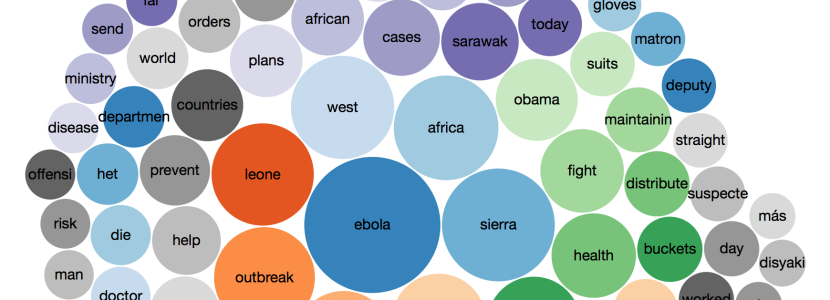Google+
5 THings Google+ Does Better then Facebook and Twitter
http://www.pinterest.com/pin/83949980529528001/

Digital Literacy for St. Cloud State University
http://www.pinterest.com/pin/83949980529528001/

http://www.symplur.com/blog/ebola-social-media-first-look-facts/
http://www.copyblogger.com/bye-facebook/
Have you ever stared at something, knowing you’re doing everything right, but it still won’t … freaking … work?
See, Copyblogger’s main focus is serving its audience. And if that audience wasn’t engaging on Facebook, then there was no real reason for us to pour energy into it. That’s energy we can put into other areas — ones you appreciate more.
We all might love Facebook for a wide variety of reasons, but that means jack if our audiences don’t interact with us on Facebook.
http://www.razorsocial.com/instagram-mobile-apps/
1. Videohance – Create Awesome Instagram Videos
2. iWatermark – Protect Your Pictures
3. Flipagram – Create Video With Your Pictures
4. Diptic – Create a Scrapbook of Images
5. Camera+ – Improve the Quality of your Photos
6. Repost Whiz – Repost Other Users’ Instagram Content
7. InstaSize – Resize Your Images
8. Word Swag – Put Text Overlays on Images
9. Emoji app – Add Emojis to your Images
http://www.cnet.com/news/teens-love-iphone-more-than-ever-but-iwatch-doesnt-excite/
When it comes to social networks, teens are even more committed to Instagram. But the most stunning statistic was that Facebook seems to be rapidly disappearing from teen’s lives. In April, 72 percent said they used the site. Now, a mere 45 percent admitted to it.
http://www.socialmedianews.com.au/social-media-statistics-australia-september-2014/
1. Facebook – 13,600,000 users (up 200,000)
2. YouTube – 13,100,000 UAVs
3. WordPress.com – 6,000,000
4. Tumblr – 4,600,000
5. LinkedIn – 3,900,000
6. Blogspot – 3,100,000
7. Twitter – 2,791,300 Active Australian Users (see calculation)
8. Instagram – 2,060,000 Active Australian Users (see calculation)
9. TripAdvisor – 1,650,000
10. Yelp – 1,300,000
11. Tinder – 1,250,000 Australian users (my estimation)
12. Snapchat – 1,070,000 Active Australian Users (see calculation).
13. Flickr – 730,000
14. Pinterest – 370,000
15. Reddit – 160,000
16. MySpace – 150,000
17. Google Plus – approx 60,000 monthly active Australian users (my estimation *revised*)
18. StumbleUpon – 51,000
19. Foursquare – 29,000
20. Digg – 19,500
21. Delicious – 19,000
Please contact us through this blog, our social media and or emails, if you need to collaborate on projects involving Google Drive:
http://lrts.stcloudstate.edu/library/general/ims/default.asp
http://www.teacherspayteachers.com/Product/Google-Drive-Docs-Lessons-Bundle-1065881

http://blogs.edweek.org/teachers/work_in_progress/2014/10/helping_students_develop_voice.html
My note: Can “3rd person” of Facebook posts help our self image? Or hurt it?
David Sarwer is a psychologist and clinical director at the Center for Weight and Eating Disorders at the University of Pennsylvania. The goal, he says, is to remove “negative and pejorative terms” from the patient’s self-talk. The underlying notion is that it’s not enough for a patient to lose physical weight — or gain it, as some women need to — if she doesn’t also change the way her body looks in her mind’s eye.
Branch Coslett, a cognitive neuroscientist at the University of Pennsylvania. It’s clear that we all have an internal representation of our own bodies, Coslett says. imagining a movement over and over can have the same effect on our brains as practicing it physically — as well as lead to similar improvements in performance.
Research published this year suggests that talking to yourself and using the word “I” could stress you out instead of bringing on waves of self-love and acceptance. Psychologist Ethan Kross of the University of Michigan led the work, studying the pronouns people use when they talk to themselves silently, inside their minds. “What we find,” Kross says, “is that a subtle linguistic shift — shifting from ‘I’ to your own name — can have really powerful self-regulatory effects.”
Considering the research of David Sarwer, Branch Coslett, and Ethan Kross, it will be interesting to explore how FB posts affect us and mold our self image or mental self. FB posts are by default 3rd person. Most of us use nevertheless “I,” but each of us has moments when we used FB default and narrated about ourselves from 3rd person.
Related articles:
Crerand, C. E., Infield, A. L., & Sarwer, D. B. (2007). Psychological Considerations in Cosmetic Breast Augmentation. Plastic Surgical Nursing, 27(3), 146. http://login.libproxy.stcloudstate.edu/login?qurl=http%3a%2f%2fsearch.ebscohost.com%2flogin.aspx%3fdirect%3dtrue%26db%3dedo%26AN%3d27253313%26site%3deds-live%26scope%3dsite
Buxbaum, L. J., & Coslett, H. (2001). Specialised structural descriptions for human body parts: Evidence from autotopagnosia. Cognitive Neuropsychology, 18(4), 289-306. doi:10.1080/02643290042000071 http://login.libproxy.stcloudstate.edu/login?qurl=http%3a%2f%2fsearch.ebscohost.com%2flogin.aspx%3fdirect%3dtrue%26db%3dkeh%26AN%3d4434458%26site%3deds-live%26scope%3dsite
http://www.slideshare.net/rebecka/intro-to-social-media-social-media-campaign